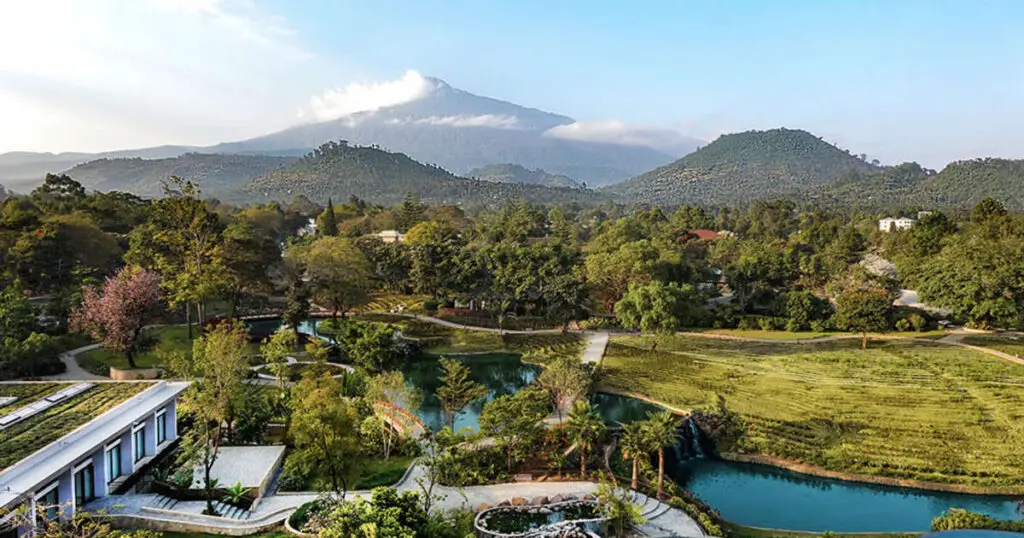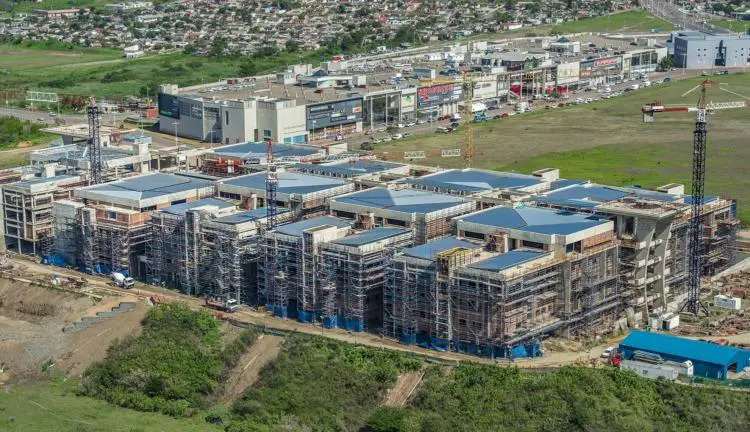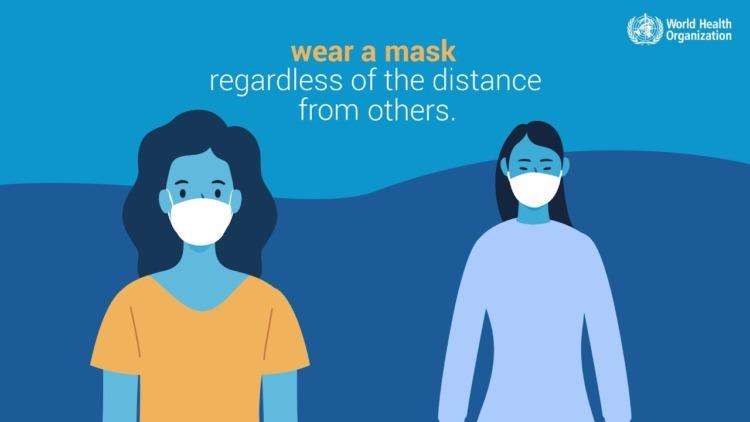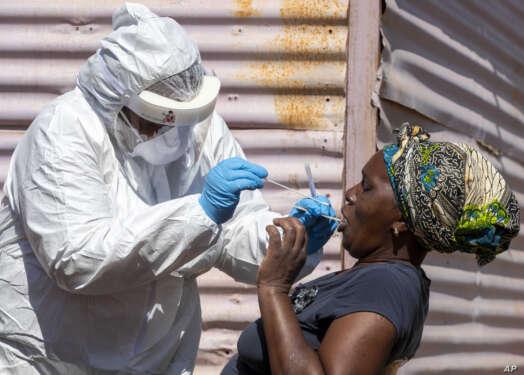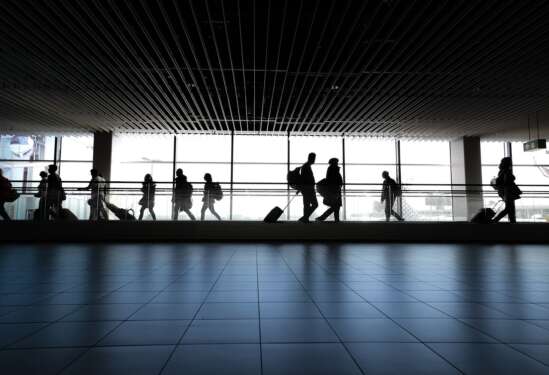- Africa’s new dawn: the rising role of digital and AI in agriculture
- Can Dangote Refinery Transform Africa Energy Ambition
- Gallup Survey: 80 per cent of Kenyan Workers Are Disengaged and Seek New Opportunities
- Madagascar Man Freed from 5KG Tumor After 15-Year Struggle
- How women in Africa are perceived and treated
- Sugar consumption in Kenya to Increase to 1.23 Million Tonnes
- Can Somalia and Turkey Oil deal Bring Change in Somaliland
- Remittances to Kenya dropped to $371.6 million in June, marking a six month low
Browsing: COVID
 The number of tourists arriving in Tanzania has increased an impressive 52% between January and November 2021 and with it, the country has enjoyed increased revenue collection of an even more impressive 69 per cent growth.
The number of tourists arriving in Tanzania has increased an impressive 52% between January and November 2021 and with it, the country has enjoyed increased revenue collection of an even more impressive 69 per cent growth.
What has sparked this increase in tourists arrivals is, among other things, the country’s rigorous decimation of the Covid-19 uptake and the generally positive response of the public. Notably, as of 5th December 2021, almost 2 million (1,699,523) vaccine doses have been administered.
As was the case elsewhere in the world outbreak of the pandemic fall in tourism arrivals severely affected the economy and more so the tourism and hospitality sectors.
To get a perspective of how the two sectors in Tanzania were hard hit, consider the fact that tourist arrivals in 2019 were slightly above 1.5 million yet this number dropped more than 50 per cent to a lowly 600,000 tourists in …
In the cement industry, the South African Government has taken a protectionist stance, banning the import of cement especially for infrastructure projects that it is sponsoring. The ban came from Treasury in October.
This decision has been widely celebrated by the cement sector which has been struggling since 2014. This period is profound in that cheap cement flooded the South African market and reduced the profits of local producers.
These cement producers according to industry body, Cement and Concrete South Africa have been under siege from cheap imports from Pakistan, China, and Vietnam. …
Private sector players in the region have expressed optimism in making steps towards the recovery of Covid-19.
This follows a commitment by the East African Community Secretariat to prioritize strengthening public-private sector partnerships between the private sector in the region and the EAC Partner States governments, to jointly invest in vaccine manufacturing in the region.
The EAC Secretary-General, Dr Peter Mathuki said that there was a need for a coordinated approach in handling COVID-19 in the region and emphasized the need for local production of vaccines.
“EAC is working on strengthening partnerships between the private sector and EAC Partner States’ governments, to jointly establish an investment in vaccine manufacturing, to ensure the region can produce and avail vaccines to East Africans. Truck drivers transporting goods across the region should also be included among the priority groups who need to be vaccinated,” Dr Mathuki said.
Mathuki also noted that the EAC …
This is the message being emphasised by Africa Centres for Disease Control and Prevention (Africa CDC) as the world pushes for continuous usage of masks in a bid to stop the spread of COVID-19.
“As the pandemic continues to spread, we must fight against pandemic fatigue and continue masking to protect our friends, our families, our communities, and the world,” reads a statement from Africa CDC.
According to the World Health Organisation (WHO) every three weeks, the new Delta variant cases keep doubling. This is not a good sign. WHO data shows that a third wave has now been reported in 16 countries. This includes nine countries that are currently experiencing surging cases.
The World Health Organisation has classified each emerging variant as either a Variant of Concern (VOC) or a Variant of Interest (VOI). The Alpha, Beta, Gamma and Delta variants fall under Variants of Concern. Whereas the Eta, …
The pandemic has shown the globe that more is needed to fortify our systems, as nearly 95 million people have contracted the virus and more than two million people have succumbed to it, while millions face the economic shocks of the virus, particularly those located in developing economies.
A World Economic Forum (WEF) publication which is part of The Davos Agenda (a virtual global leaders’ meeting on sustaining an inclusive and cohesive future) noted that the pandemic has exposed several threats to the world. …
In its fight against Covid-19 Rwanda has opted to have robots replace humans when coming into contact with infected persons.
With the support of the United Nations Development Programme (UNDP) Rwanda is to deploy its second set of three ‘THOR UVC’ robots.
What are these avenger bots all about? As its name suggests, the THOR ultra-violet (UVC) uses UVC to disinfect. Using room mapping technology, THOR UVC is able to go around a given cleaning space and disinfect it efficiently.
It uses UVC energy to kill germs and pathogens that way, the robots minimize contact of persons with the pathogens. So the deployment of the THOR UVC robots will help clean and disinfect Covid-19 risk areas like hospitals.
The robots will also serve to disinfect areas of mass gathering like border areas and market places as well as office spaces.
This second dispatch of robots was handed over on …
The super spreading virus that triggered a pandemic of global proportions has entered a second wave. Most African countries are struggling to cope. Their already fractured health systems are at pains and facing challenges in handling the ballooning cases. Lockdowns and travel restrictions are still in place for some countries, greatly impacting economic activity.
For example, Zimbabwe is currently in the middle of a month-long lockdown with only essential services operating. The restrictions have shut down all informal sector activity, which forms the bulk of economic activity. In South Africa, level 4 restrictions induced the closure of the busiest land borders. …
‘If you take care of your employees, they will take care of your customers, and your business will take care of itself ‘J.W.Marriott’
The spread of COVID-19, (commonly referred to as Corona Virus) has now become a household term that is apparent worldwide. As a global health emergency, the hope is that the new vaccines that are aimed to roll out in early January 2021, will add to the greater safety of the human population, namely public areas and workspaces.
Though much of the frontline workers will be vaccinated first, followed by those considered in the vulnerable category, the goal for many countries is to ensure that their populations are vaccinated first.
As Governments/Employers respond to the crisis and slowing down the spread of the virus, decisions to postpone events, impose travel restrictions, withdrawal of everyday services; (restaurants, parks, beaches, cinemas, and entertainment venues) school closures, and work from home …
The South African government last week announced a resumption in international visitors to the country amid a COVID- 19 infection reality.
Earlier this year, South Africa, like many other countries, shut itself out from the world to control the spread of COVID within its borders. It immediately implemented local lockdowns which have been gradually lifted in different phases.
Authorities had initially indicated that international borders were billed to be opened in February 2021. The country has, however, given the green light to international visitors in order to stimulate a faltering tourism sector.
Initially, borders were opened on October 1 but excluded visitors from many countries that were classified as high risk.
Last week, the government updated its travel restrictions alert, opening up entry to all countries.
The opening up of borders is aimed at arousing the tourism sector in South Africa which contributes significantly to GDP. It has been …





